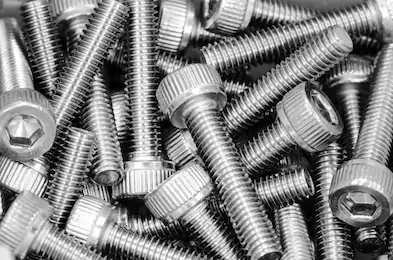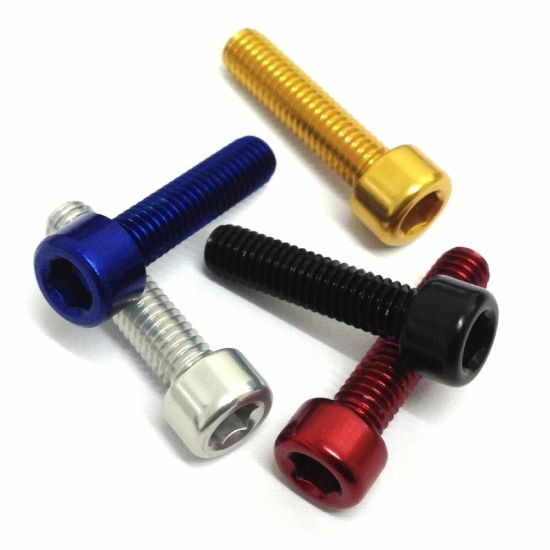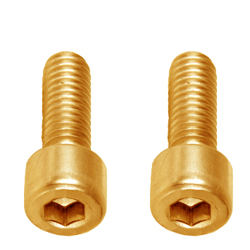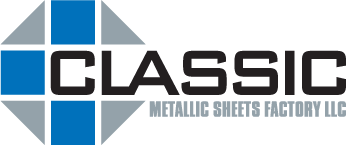What is a Socket Screw?
 |
| Socket Screws |
Socket screws are a kind of screw designed and manufactured using an internal hexagonal (hexagonal) drive built into the head. As such, they are designed to be tightened and loosened with an Allen wrench or hex key, as opposed to a standard screwdriver. This is the key feature which sets a socket screw apart from other screw head drive styles like the Phillips head screw, slotted, flathead screws, and Pozidriv screws to name just a few.
Another
common distinction is that socket screws are usually squared off at the tip.
These are normally referred to as flat point socket screws and they tend to be
the most widely used kind found in many common applications. Although, it is
worth noting that several other designs are also available.
In most other regards, there is not generally much physical difference between socket screws and standard screws for the majority of everyday uses. So what exactly is the point of a socket screw, and when should you use it?
Basically,
socket screws join some of the increased performance features of other common
hex fasteners nut and bolt systems being the apparent point of reference with
the convenience and ease of use of a regular format screw set. This middle
ground could be a useful compromise in many situations, especially when working
in small spaces or areas without easy access to secure externally wrenched hex
fasteners.
 |
| Socket Screw |
Advantages of Socket Screws
The
potentially higher torque and clamping force that can be obtained with a
hexagon socket screw over an ordinary screw make it a preferable option in some
applications. Compared to standard screws and bolts on a model for a similar
test, socket head screws can typically provide some or all of the following
benefits in relevant scenarios.
Since socket
screws generally provide higher clamping force than regular screws and many
other small-format fastener types, fewer socket screws could be used in a given
application to obtain the same all-around clamping force on the joint or
workpiece. Using fewer screws means:
- Lowered hardware costs
- Fewer holes to drill and tap into mounting surfaces, saving time and lowering potential damage to components
- Lower the total weight of the finished product
The trend
towards lightweight constructions while using socket screws is further improved
because of their smaller individual size than many other kinds of screws And
the fastening components, particularly with respect to the fastening
arrangements of nuts and bolts.
In
particular, the cylindrical heads and internal drives of hexagonal socket head
screws have a much smaller diameter than the external hexagonal head fasteners
and thus require less space without extra space required to manoeuvre a wrench
for installation.
 |
| Hex Socket Screw |
What is a Socket Head Cap Screw?
The name
'cap screw' was generally used as an umbrella term, meaning any one of the
several screw types selected for fastening applications where the use of a nut and
bolt installation was considered inappropriate. Although, today, it tends to refer
specifically to a certain style of screw head.
Any number of different screw types and shapes could incorporate elements of the basic cap screw head design you may find anything from shoulder screws and countersink screws, through to button and fillister head screws are generally described as cap screws. A socket head screw is also commonly known as a socket screw, an allen bolt or simply a socket screw. In many ways, it is very much the regular version of a socket screw.
Socket head
cap screws are used extensively in industrial production as well as assembly
lines, including in the automotive sector, furniture manufacture, machine
tooling applications and steel fabrication. This is chiefly because of the fact
that they are simple to install and tighten or loosen, as well as offering
impressive clamping strengths while maintaining a discreet and tidy finished
look.
As with the
vast majority of all socket screws, the socket head cap screw features a
cylindrical head with an internal hex drive hole and is usually threaded all
the way along the full length of the shank. Similarly, they are mainly designed
to be used in assemblies where there is not sufficient clearance to install a
traditional nut and bolt or to manoeuvre a regular socket wrench.
 |
| Socket Head Cap Screw |
Socket Screw Sizes
The ordinary
socket cap screw head is around 1.5 times the diameter of the screw shank, and
about as high as the shank is wide. Although, replacement head designs for
socket head cap screws consist of low head, button head and flat head varieties,
designed for driving into countersunk holes and other application-specific
mounting positions.
When looking
to buy socket screws, note that the stated length of the product is generally
measured from immediately under the head to the tip. This is the case for most
screw types, but some certain varieties - thumb screws, for instance will usually
give stated length measurements which include the height of the head in the
overall specification.
Most socket screw types are available in either metric or imperial measurements for length and diameter, depending upon the certain manufacturer or supplier in question. Many large brands and socket screw manufacturers will generally offer a socket screw sizing chart or similar tool which could be referred to at the point of sale.
While relatively
small socket screw sizes of diameters starting from M2 to M6, and lengths of
around 3 millimetre to 20 millimetre tend to be in greater demand across an
extensive range of tasks and applications, the complete range of available
sizes is considerable. Larger, heavier gauge and extra-long socket screws are
not at all unusual, especially in widths of around M8 to M20, and lengths of
anywhere up to 130mm.
Extra-long socket
screws are generally found in electrical plug sockets. Regular electrical
socket screw sizes include 40mm, 50mm, 60mm, 75mm and 100mm.
 |
| Hexagon Socket Head Cap Screw |
Socket Screw Materials
There are
many different materials used in the production of socket screws. The most
common materials are steel and stainless steel but options include brass,
aluminium, black nickel, zinc-plated and chrome socket screws. The ideal
material to choose will depend on the precise application where the socket
screw will be used.
Some of the most common socket screw materials are:
Aluminium Socket Screws
Aluminium
socket cap screws are generally preferred for applications in which weight is a
key factor. This may include applications starting from the automotive industry
through to uses like installing hardware and trim on moveable furniture,
cabinets, doors and windows.
While aluminium
weighs only about one-third of the weight of the steel, it is durable and tends
to have a lower shear strength. While aluminium provides decent performance in
terms of corrosion resistance in more challenging environments, it is less
hardwearing than stainless steel.
 |
| Aluminium Socket Screw |
Zinc or Nickel Plated Steel Socket
Screws
The main
reason why so many sets of steel socket cap screw are available with zinc or
nickel plating alternatives is for the superior corrosion or rust resistance
this easy manufacturing process could provide screws of all types.
Combined zinc-nickel
plating is usually considered to be a tougher coating up to twice the hardness
when compared to regular zinc plating, and it could also deliver up to four
times the corrosion resistance of other metallic coating methods. While, it is
generally more expensive, and might not be considered a cost-effective option
in many applications where ordinary galvanized steel socket screws would
suffice.
 |
| Zinc Plated Steel Socket Screw |
 |
| Nickel Plated Steel Socket Screw |
Brass Socket Screws
Brass socket
cap screws may be usually preferred for their aesthetic value, but as an alloy
of copper and zinc, brass or brass-tipped socket screws might provide further
advantages in specific situations. Brass is stronger than copper alone, however
it will still be considerably less rigid than most varieties of steel or
stainless steel socket screw.
Although, it
is also worth noting that brass plating will be less resistant to corrosion
than solid brass socket screws. If the product will be used in an exposed
location or outdoor application, solid brass socket screws are the preferable
alternative.
 |
| Brass Socket Screw |
Types of Socket Screws
In addition
to the different materials, socket screws are also available in different
types:
Button Head Socket Screws
Button head socket
cap screws are also called as round head or dome head socket screws. They are
fabricated with a smooth, slightly rounded dome at the head, which tends to be
somewhat larger and more bulbous than regular cap screw varieties.
Usually,
this means that a button head socket screw could be big enough for a larger
gauge of hex key or driver, and thus could be affixed with more torque to
obtain greater clamping forces. Although, smaller sized hex socket button
screws should be fastened with less torque. Button socket screws could also be
supplied with tamper-proof drives.
 |
| Button Head Socket Screw |
Countersunk Socket Screws
Hex socket
countersunk screws, are otherwise called as flat or flat head socket screws, and
they are used in applications where it is essential that the installed screw
sits flush with or just underneath the surface of the workpiece.
Countersunk
socket screws feature a sloping shoulder design generally at a normal angle of
around 82 degrees which permits the screw to bed down into the surface via a
pre-drilled countersunk hole. Again, they are available in various lengths and
widths and are extensively available under both imperial and metric socket
screw sizing charts.
 |
| Countersunk Socket Screw |
If you want quality Industrial fasteners for your business, you can call us at +971-506349042, +971 6 575 1335.



I have read your blog it is very useful for me and your content is very good to get information. Please keep it up for next time and you can visit my website Duplex 2205 Plate Supplier in India.
ReplyDeleteThanks for the useful information which is very helpful and well informed to information seekers, please provide some information about 304 SS Shim Manufacturer in India, 316 Stainless Steel Shim and 304 SS Coil Suppliers in India.
ReplyDeleteThere are many blogs that I read. But when I read your blogs I get such useful information, such amazing editing along with new content everything is excellent in your blog. Thanks for sharing this useful and informative information with us. If you're looking for best SS 304 Pipes Supplier and Stainless Steel 316 Seamless Tube then visit Stanley Alloys.
ReplyDeleteNice article. Highly recommended. Thoughts are clear and well explained. Thanks for sharing your work, really worth reading. You can also visit my blog at Stainless Steel Square Hollow Sections.
ReplyDeleteThanks for sharing the post. Metal heat treatment means treatment at the right temperature, JF Engineering Products LLP is the best Hex Coupling Nut manufacturer in India. Quality is the key when building a building. Then the quality of Stainless Steel dealers in India will meet the needs of the customers.
ReplyDeleteI just came across your blog...your information is very valuable. Thanks for sharing this information. Nexus Copper Pvt. Ltd. A company providing the best Lightning Rod Base worldwide to our customers in India.
ReplyDeleteThanks for sharing this post. This is a nice post. See more - stainless steel pipes
ReplyDeleteI thoroughly enjoyed reading your blog! Your insights on Industrial Fasternerswere enlightening and well-presented. Looking forward to more great content!"
ReplyDelete